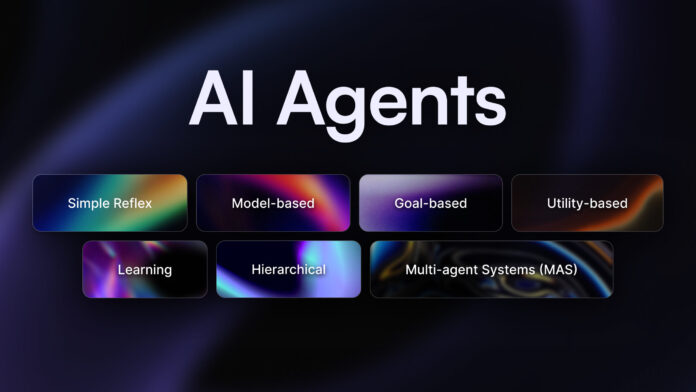The Shift to Autonomous AI Agents
The field of artificial intelligence is undergoing a major shift with the development of autonomous agents. These intelligent systems have the potential to transform many areas, including customer service, sales, and supply chain management. Several companies, such as Microsoft, have launched autonomous agents aimed at improving efficiency in these sectors. At the same time, OpenAI has explored the coordination of multiple AI agents with its experimental project, Swarm. Anthropic, with its Claude model, takes agentic AI to the next level by offering, in its beta version, more advanced interaction capabilities with computers, such as moving a cursor or typing via a virtual keyboard.
But why is the concept of AI agents generating so much interest?
What are AI Agents?
AI agents are sophisticated systems that can make decisions and accomplish tasks autonomously. These agents operate independently once a goal is set. According to Adnan Ijaz, product manager at Amazon Q Developer, Amazon Web Services’ AI-powered development assistant, « humans define the mission, but it’s the agent that determines by itself the most efficient way to accomplish it. » Such systems are capable of interacting with external platforms to carry out actions in the real world.
Another crucial aspect of agentic AI is its ability to continuously improve. These agents can incorporate feedback and adjust their behavior to optimize their results. As Yoon Kim, a professor at MIT, explains, an AI agent can learn from its mistakes, thus becoming more effective over time as it performs similar tasks.
Compared to generative AI, AI agents go beyond mere content creation. While generative AI produces new elements based on patterns it learned during training, AI agents are capable of taking action based on the information they gather from their environment. This enables the agent to perform a task in a more interactive manner and to respond to specific needs.
How an AI Agent Operates
When an AI agent is assigned a task, it typically follows a structured series of steps to accomplish it. The first step is understanding the goal to be achieved, based on a prompt or directive from the user. Then, the agent breaks the task down into subtasks and identifies the necessary information. Finally, it executes the required actions, using its knowledge base and any available tools to achieve the goal.
Let’s imagine an example where the user asks the agent to “book the cheapest flight from A to B on date Y.” The agent would first search for available flights online, filter the results to find the most affordable one, and then connect to an API to finalize the booking, filling in the required details based on its own database.
The key to agentic AI lies in its ability to understand the user’s goal and take the necessary steps autonomously. However, this does not mean that humans are completely removed from the process. If the agent encounters an obstacle, such as a fully booked flight, it could alert the user, who would then decide on the next course of action. If needed, humans can always take back control and redirect the agent.
Benefits and Challenges of Agentic AI
Much like generative AI, agentic AI promises to simplify many tasks by automating repetitive or time-consuming activities. According to Kim, these systems could eventually handle daily tasks like managing a calendar or booking restaurants, freeing up time for users.
However, the reliability of these agents is paramount, especially concerning data privacy and security. « Agents handle a large amount of personal data and must operate securely, » explains Ijaz. It is, therefore, essential to implement proper safeguards to prevent malicious or inappropriate use of information.
For example, researchers have demonstrated that it is possible to deceive AI agents, prompting them to use tools incorrectly to retrieve sensitive data. This vulnerability was exploited by researchers at the University of California and Nanyang Technological University, before being fixed after being disclosed.
In addition to security issues, the accuracy of the information provided by AI agents is another challenge. These systems are based on language models that, while effective, can sometimes generate errors, known as « hallucinations. » While a mistake in booking a flight may not be catastrophic, errors in sensitive fields like healthcare or finance could have serious consequences.
Agentic AI is still in its early stages, but while it holds great potential, caution is necessary to avoid the risks associated with its use. As Ijaz points out, « The introduction of AI agents is a significant advancement, but it’s crucial to design them following responsible and safe practices. » These agents will become powerful tools as long as humanity ensures they are used ethically and that data is managed responsibly.


